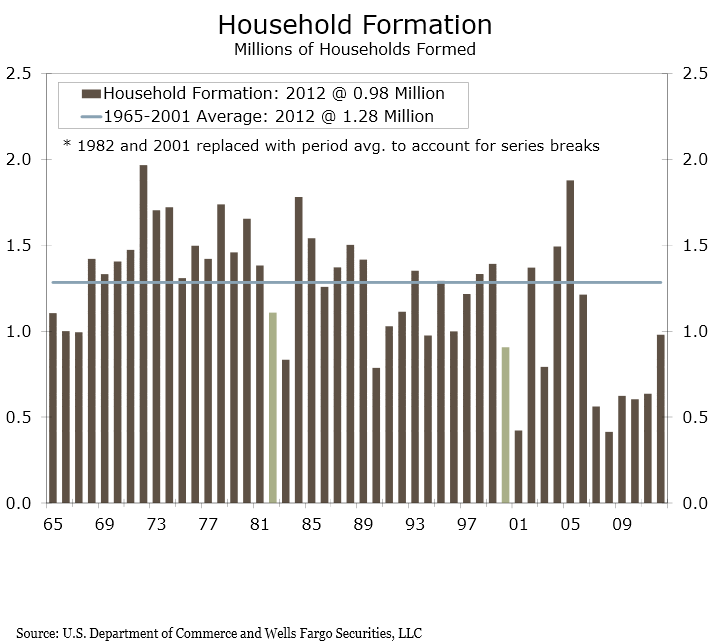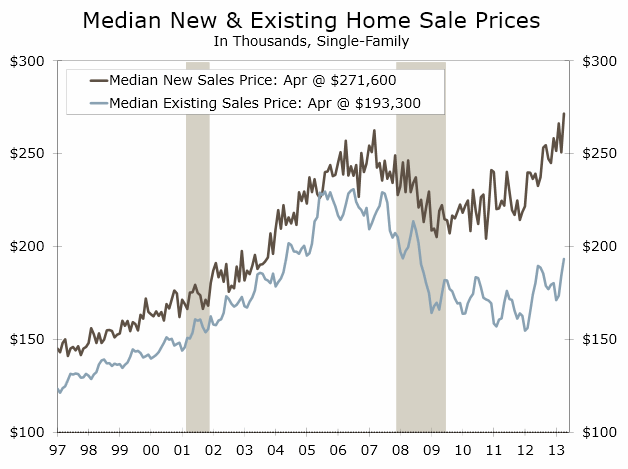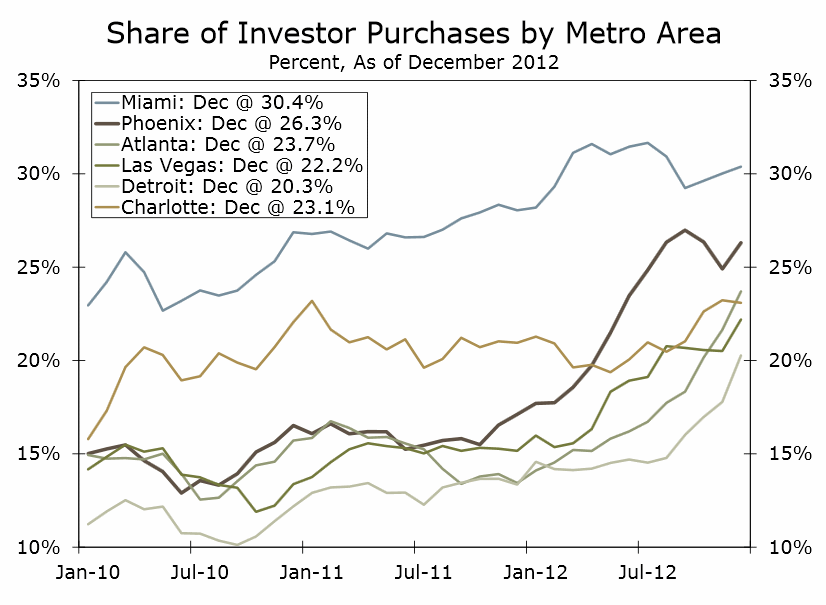Blog

Details from Wells Fargo Conference Call on Housing Market
Wells Fargo bank held a conference callrnon the outlook for the housing market on Tuesday, the first ofrnseveral planned for 2013. The bank’s economists Mark Vitner and Anika Kahn gave a fairly wide-ranging presentation about currentrneconomic and housing indicators which was geared primarily towardrninvestors.</p
The GDP has averaged 2.1 percent growthrnin the quarters since the recession ended four years ago. Vitnerrnsaid that he expects growth to accelerate modestly over the next twornyears, There was a big shift in drivers over the last year withrnhousing picking up while the government sector proved to be a drag on growth. With growth in the state and local government sectorsrnlooking better, overall government growth will be providing less of arnbrake on the economy although the federal government contribution isrnnot expected to improve.</p
Attention is shifting toward thernFederal Reserve and their policy of quantitative easing. Vitner doesrnnot expect them to make an immediate move to wind it down but doesrnexpect action in that direction by the end of the year. In thernmeantime the Fed is acting to direct attention to the possibility ofrna move which is having some of the same effect as an actual move. </p
There has been talk about deflation butrnVitner said he does not see that as a problem even as inflationrnremains low. There are some areas that are experiencing inflationrnsuch as the stock market and farm prices.</p
Household formation picked up at thernend of 2012 but while it is up off of the floor it is far fromrnnormal. Household assets have returned to pre-recession levels butrnthis growth in assets has accrued to the wealthy; other income groupsrnhave actually seen a decline in wealth which is one reason thatrnhousehold formation is not returning to normal levels. Whilernemployment is also improving, they are not quality jobs. They arernlower paying, in some cases temporary positions and not type ofrnemployment that will give a boost to housing demand</p
 </p
</p
Vitner said that the conventionalrnwisdom is that refinancing has played out, but one-half ofrnoutstanding mortgages have interest rates of 5 percent or above. Purchase mortgages have not picked up appreciably despite the lowrninterest rates and he feels that rates are nowhere near the pointrnwhere they will begin to turn off purchasers since the low ratesrndidn’t turn them on. Job growth is a bigger driver of housingrndemand. </p
Purchase Index vs 30 Yr Fixed</b</p
ChartManager.loadChart(‘purchaseappschart’, ‘PurchaseMtgAppChart’);
</p
Refinance Index vs 30 Yr Fixed</p
ChartManager.loadChart(‘refiappschart’, ‘RefiMtgAppChart’);
</p
Mortgage underwriting has been tightrnand won’t be loosening up, the economists said. Lenders are inrna better position than they were a year ago but are still putting outrnthe fires left over from the crash so few exceptions are being madernto underwriting standards. Many younger buyers – which constituterna large part of first-time buyers are finding themselves unable tornbuy because a high percentage have low FICO scores that make itrnimpossible to qualify for prime mortgages. </p
Viter and Kahn said they do not seernhousing starts returning to normal until 2016 although they will getrnincrementally better. Projections are for 665,000 single-familyrnstarts this year, up from 535,000 last year, and 820,000 starts inrn2014. Multifamily starts, however are projected to level off fromrnthe spurt this year – when starts are expected to jump from 245,000rnto 325,000 – and increase only by 25,000 units in 2014. Demand forrnapartments has been strong but should reach a balance with supply byrnlate this year. It will be much less of a slam-dunk to buildrnapartments after that than it was two years ago, they said.</p
Much of the building going on recentlyrnhas been by large national and regional companies which had access torncapital, were able to buy up prime lots and unfinished developmentsrnand able to sustain a workforce. The economists said they expect asrnthe economy picks up that custom builders will slowly move back intornthe market. Construction prices have come down in the last quarter,rnespecially for lumber. </p
The two said they expect home pricernincreases to level off next year, going from a 7.2 percent increasernin 2012 and 8.8 percent this year to 1.9 percent in 2013. Much ofrnthe price increases to date have been fueled my people picking uprnhouses at the lower end that had been severely devalued and byrnsteadier sales at the upper end. Investors have made a significantrncontribution to sales, especially at the lower end, and may start tornpull back from the market. First-time homebuyers are still havingrnproblems entering the market, and the move-up market is struggling,rnpartly because so many current homeowners are unable to sell theirrnhomes because of negative or near negative equity. </p
The higher than normal premium on newrnhouse prices may be a function both of the fact the upper end hasrnheld up better than the rest of the market and also low interestrnrates. With rates at 3.5 percent it is easy to opt for the fancierrnkitchen that is going to be paid for over 30 years. </p
 </p
</p
Vitner and Kahn said they are troubledrnby the move on the part of institutional investors to buy up largernnumbers of homes to convert to rentals. This is leading to a run uprnin home prices in some major markets and is creating a new assetrnclass, which by its nature is speculative and usually leads tornproblems. It is of particular concern that this is going on in manyrngeographic areas that are not traditionally favorable to rentalsrnbecause of a surplus of low-cost housing and the ease of building. As these investors find it harder to raise rents they will also findrnit harder to raise capital. While Vitner said they don’t expect thisrnasset class to implode, if it should suffer a sharp setback, it atrnleast should not come back to harm the banks as the last crash did.</p

All Content Copyright © 2003 – 2009 Brown House Media, Inc. All Rights Reserved.nReproduction in any form without permission of MortgageNewsDaily.com is prohibited.
Latest Articles
By John Gittelsohn August 24, 2020, 4:00 AM PDT Some of the largest real estate investors are walking away from Read More...
Late-Stage Delinquencies are SurgingAug 21 2020, 11:59AM Like the report from Black Knight earlier today, the second quarter National Delinquency Survey from the Read More...
Published by the Federal Reserve Bank of San FranciscoIt was recently published by the Federal Reserve Bank of San Francisco, which is about as official as you can Read More...

Comments
Leave a Comment